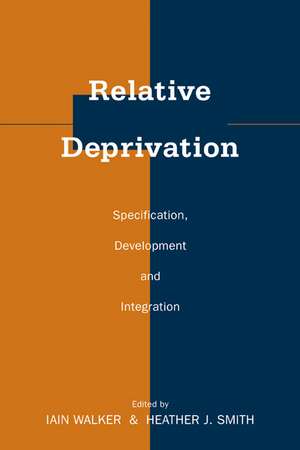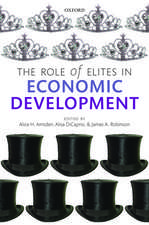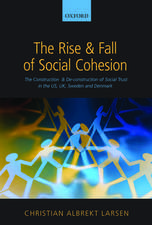Relative Deprivation: Specification, Development, and Integration
Editat de Iain Walker, Heather J. Smithen Limba Engleză Paperback – 16 feb 2011
| Toate formatele și edițiile | Preț | Express |
|---|---|---|
| Paperback (1) | 322.12 lei 6-8 săpt. | |
| Cambridge University Press – 16 feb 2011 | 322.12 lei 6-8 săpt. | |
| Hardback (1) | 786.29 lei 6-8 săpt. | |
| Cambridge University Press – 2 dec 2001 | 786.29 lei 6-8 săpt. |
Preț: 322.12 lei
Nou
Puncte Express: 483
Preț estimativ în valută:
61.64€ • 64.52$ • 51.30£
61.64€ • 64.52$ • 51.30£
Carte tipărită la comandă
Livrare economică 31 martie-14 aprilie
Preluare comenzi: 021 569.72.76
Specificații
ISBN-13: 9780521180696
ISBN-10: 0521180694
Pagini: 390
Dimensiuni: 152 x 229 x 20 mm
Greutate: 0.52 kg
Editura: Cambridge University Press
Colecția Cambridge University Press
Locul publicării:New York, United States
ISBN-10: 0521180694
Pagini: 390
Dimensiuni: 152 x 229 x 20 mm
Greutate: 0.52 kg
Editura: Cambridge University Press
Colecția Cambridge University Press
Locul publicării:New York, United States
Cuprins
1. Introduction Iain Walker and Heather Smith; Part I. Specification: 2. Group deprivation, collective threat, and racial resentment: perspectives on white racism Marylee C. Taylor; 3. Understanding the nature of group deprivation: does group-based deprivation involve fair outcomes or fair treatment? Tom R. Tyler and E. Allan Lind; 4. Relative deprivation and intergroup attitudes: South Africa before and after the transition John Duckitt and Thobi Mputhing; 5. Is it just me? The different consequences of personal and group relative deprivation Heather J. Smith and Daniel J. Ortiz; Part II. Development: 6. Personal and group relative deprivation: connecting the 'I' to the 'we' Francine Tougas and Ann M. Beaton; 7. 'Poisoning the consciences of the fortunate': the experience of relative advantage and support Colin Wayne Leach, Nastia Snider and Aarti Iyer; 8. The embeddedness of social comparison C. David Gartrell; 9. Japanese and American reactions to gender discrimination Matthew Crosby, Kazuho Ozawa and Faye Crosby; 10. Collective action in response to disadvantage: intergroup perceptions, social identification, and social change Stephen C. Wright and Linda R. Tropp; Part III. Integration: 11. Social identity and relative deprivation Naomi Ellemers; 12. Relative deprivation and counterfactual thinking James M. Olson and Neal J. Roese; 13. Relative deprivation and attribution: from grievance to action Iain Walker, Ngai Kin Wong and Kerry Kretzschmar; 14. Spontaneous temporal and social comparisons in children's conflict narratives Anne Wilson, Etsuko Hoshino-Browne and Michael Ross; 15. Prejudice as intergroup emotion: integrating relative deprivation and social comparison Eliot R. Smith and Colin Ho; Part IV. Conclusion: 16. Conclusion Thomas F. Pettigrew.
Descriere
This book, first published in 2001, features integrative theoretical and empirical work from social psychology, sociology, and psychology.














